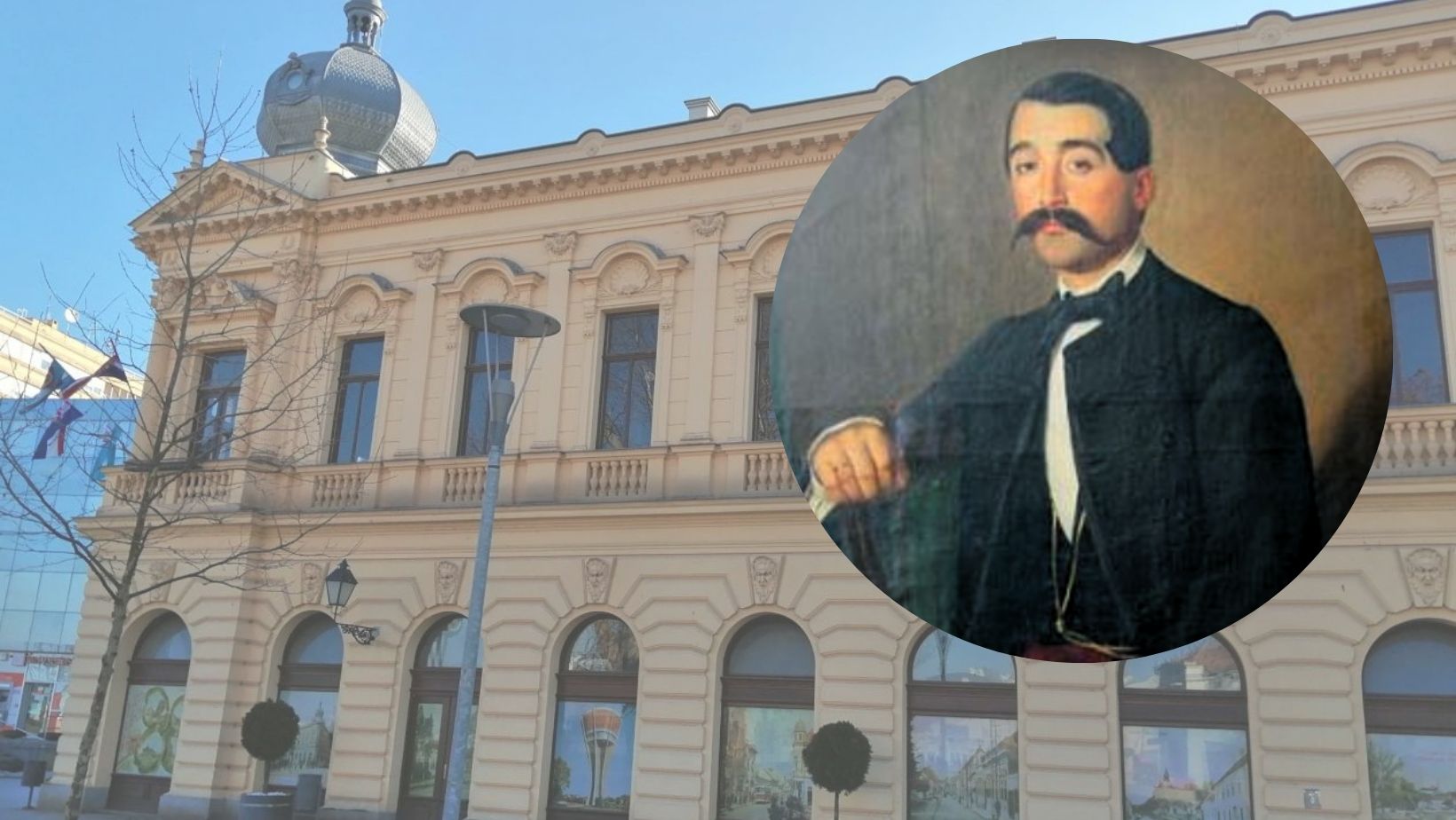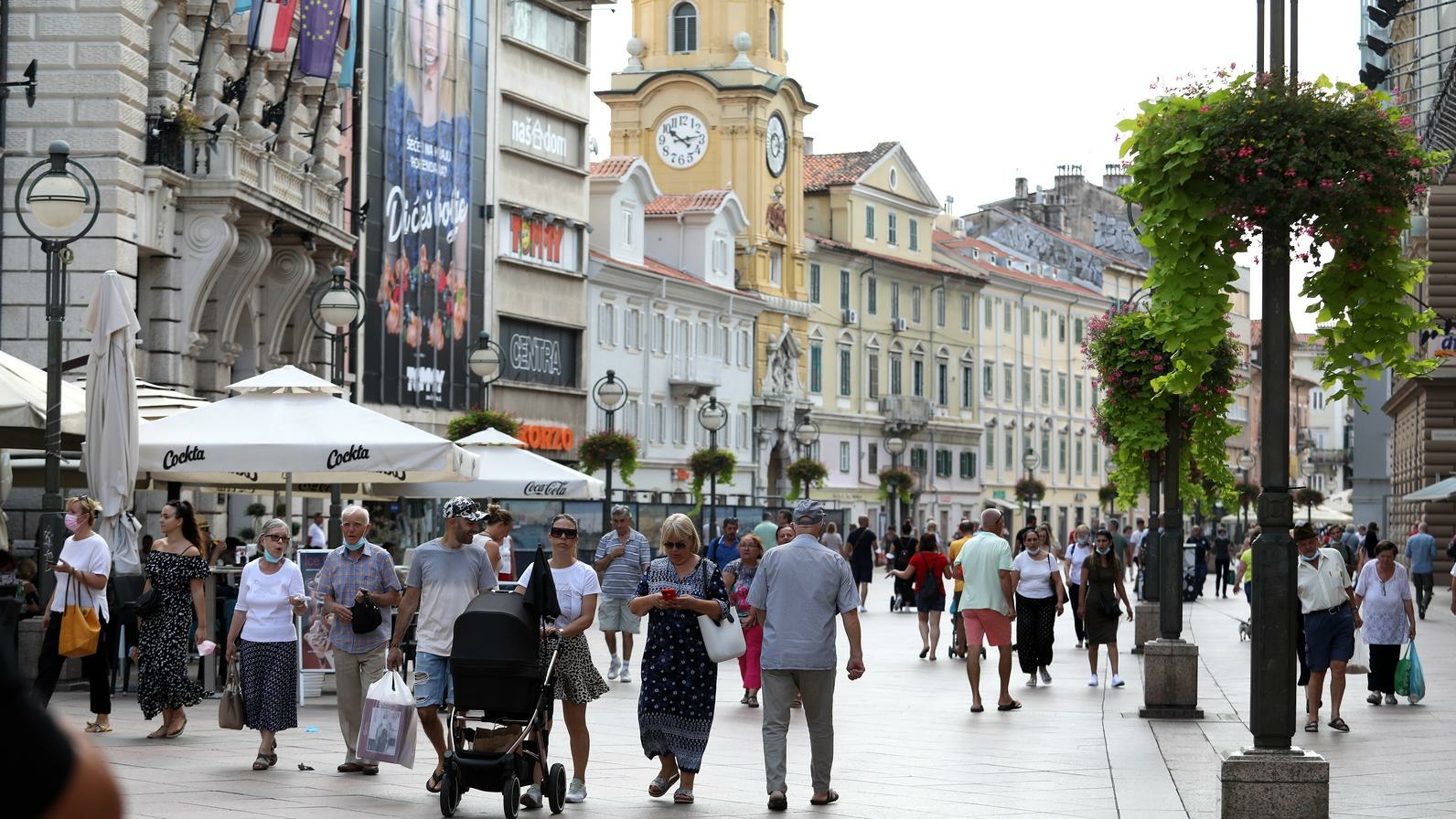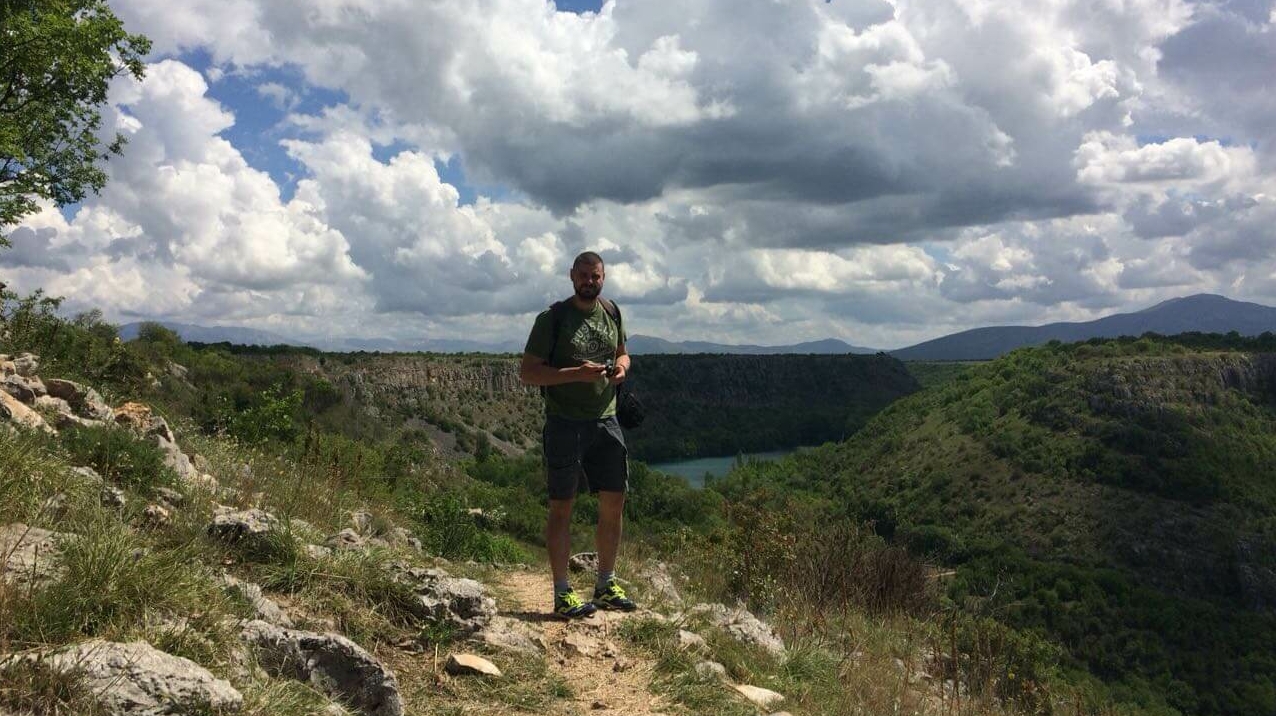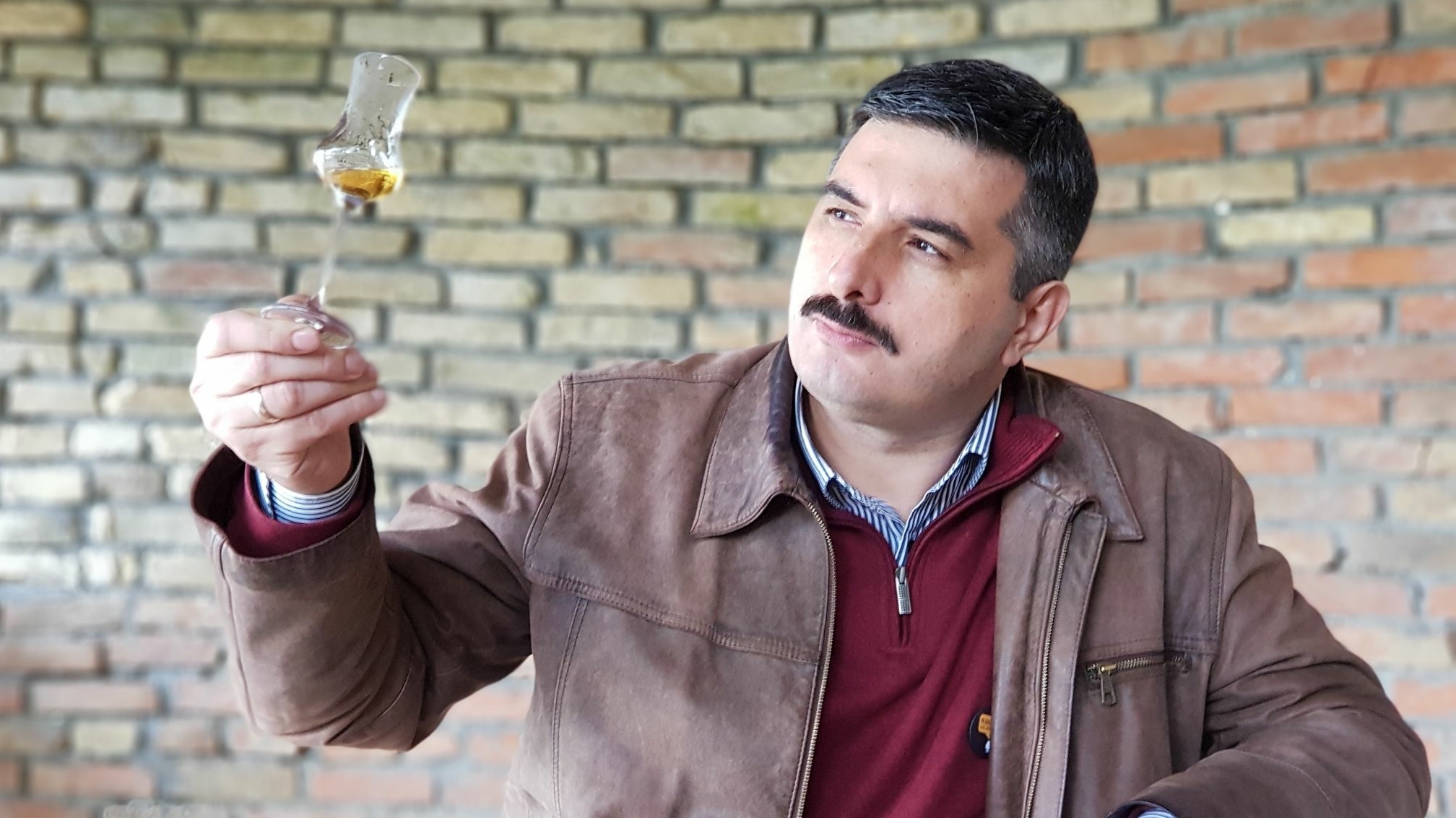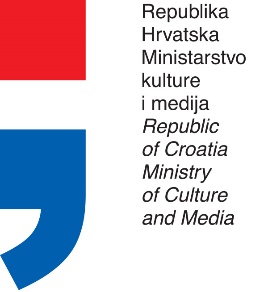The story of the landowning Paunović family could not be told without Liljana Pekić Paunović’s book Aleksa Paunović – a Family Chronicle, whose presentation we wrote about earlier. This biographical book describing the life and work of Aleksa Paunović is the only reliable document about him. Other sources about him are simply nonexistent, except for the records of family property kept in numerous archives and libraries.
The book is also based on family documents and the recollections of many Paunović family members. The author herself is a member of this prominent and wealthy Vukovar family, and she wrote the book as the spouse of Fedor Paunović – Aleksa’s great-grandson.
The child of a new age
The Paunović family came to Vukovar in the 18th century, bringing with them their crafts – the coppersmith and leatherworking craft. It was the time of Maria Theresa, when Serbs and Germans began to settle in large numbers in the Syrmia County, and Vukovar became the seat of the largest estate in Slavonia and Syrmia. It soon developed into a city of merchants and craftsmen, who bought and sold their goods at fairs; a city where merchants’ and craftsmen’s associations and guilds were founded; a city where people worked and crafts were highly valued. It was a carefree time when there was plenty of work for anyone who wanted to work.
In the first half of the 19th century, young coppersmith and roper Atanasije Paunović worked in Vukovar. He had taken over the trade from his prematurely deceased father. He sold his products at the market and made a good living out of his trade, which soon became very profitable. He married and in 1824 had a son, whom he named Aleksa – a child of the new age. At the time of Aleksa’s birth, the craftsmen class, to which master Atanasije Paunović belonged, began forming a new bourgeois class.
Old Atanasije wanted his son to continue in his path and inherit the family trade, but Aleksa never showed interest in it. From an early age, he visited fairs, observed merchants, calculated, discussed and negotiated. When he got 1000 forints from his father, he parted ways with him and made his first plans for a future life.
What Aleksa intended to do required of him to first learn the butcher’s trade. In the meantime, he went to the famed Šabac fair as a first step towards the kind of life he wanted to live. Several circumstances worked in his favor. He already had experience in visting fairs near his house. He got to know the market, learned what was cheaper at which fair and discovered the differences in prices. At that time, Vukovar became an important place for the cattle trade. Cattle was bought at favorable prices in Bosnia and Serbia and delivered to Vienna. Vukovar became a city of cattle fairs and goods fairs. Aleksa Paunović, now a member of the young capitalist class, entered this cattle trade.
At the fair in Šabac, Aleksa carefully walked among the booths, deciding how to spend his 1000 forints. The merchants did not take him seriously, thinking he was a child who got lost in the crowd looking for his parents. He bought his first turkeys from master Teodor, a reputable Šabac merchant. He went back to Vukovar and sold them at a slightly lower price than that of the local poultry breeders. This earned him his first substantial profit and allowed him to begin trading in cattle in earnest. He again found himself at the Šabac fair, now buying purebred heifers, but this time he exported the cattle to Vienna, where he could sell them at higher prices than in Vukovar. He sold all his cattle as soon as he got to Vienna and repeated this transaction once more. Vienna became the promised city for trade and a dream come true for Aleksa. He stopped by in Vukovar to return the borrowed 1000 forints to his father and to give another 1000 forints as a gift to his mother.
Aleksa now made an important step and founded his own firm. He bought calves, reared them and then sold them. With time, his herd grew and multiplied, and the profits increased. The moment came to enter the butcher’s trade. He got to know Viennese butchers, his best customers, gained experience and learned the craft from the best masters. He soon became the best in the business and opened six butcher’s shops in Vukovar, establishing a monopoly on the meat trade in the city. Meanwhile, he continued buying, rearing and selling cattle on the Viennese market, earning huge profits.
The richest Serb in Vukovar
Aleksa began visiting the Austrian capital more often, now as a tourist. He observed Viennese architecture, admiring the values of local artists and builders. He bought valuable artifacts and paintings at auctions and slowly entered the real estate business. He believed his profits from cattle trading should be wisely invested to ensure a secure future for his descendants. He started buying houses in Vukovar – 86 of them. After that, he started erecting buildings with Viennese architecture as the model. The business empire expanded, and the capital grew.
During the 1850s, most butchers’ shops in Vukovar were owned by Aleksa Paunović. His cattle farms were well maintained by the workers he employed. He became known for quality meat and milk, which brought him large profits. He owned three pastures, among the best in the region. By the end of the 19th century, he became the owner of the very center of the city, purchasing house after house in the old city center. He built the Paunović family home in the center of the city, where he and the next three generations of the family would live.
Two architectural masterpieces – the Paunović Grand Hotel and the family mausoleum – were commissioned by Aleksa near the end of his life and designed by the best architects.
After striking out on his own, Aleksa Paunović bought and built 86 houses in the center of Vukovar, over 2300 ha of arable land, three pastures, a building materials factory in Bačka, a luxurious family home, the Grand Hotel and two churches, becoming the richest Serb in Vukovar already in his youth and the richest Vukovar citizen after Count Eltz. Even so, he remained a modest and simple man who kept his life private and did not get involved in politics, but his opinion was nevertheless highly valued in the city. Aleksa’s each new endeavor was followed with great interest.
Ljiljana Pekić Paunović describes him as “an incurably energetic man, a man of action and unrest who was strictest towards himself. He worked day and night and expected the same of others. He was quick, enterprising, energetic and persistent and always achieved what he set as a goal. He did not spend time in taverns, nor could he be reproached for any bad deeds, but some did say he was bad-tempered, haughty and strict. His building endeavors beautified the streets but also provoked jealousy. People said he was competing with Count Eltz. Enviously they accused him of vanity and boastfulness, of wanting to imitate and surpass the count by building better and more beautiful buildings, but his works elicited unanimous respect.”
Paunović further states that on every house Aleksa built or purchased he installed a granite plate bearing his name and date of construction or purchase written in gold Cyrillic letters. She points out that the opulent buildings and vibrant parks of Vienna thrilled Aleksa, who always came home with new ideas and plans. He brought various artifacts, paintings, statues, furniture, tableware, jewelry, works of art and other valuable items from Vienna and other cities. He got to know intimately the world of great artists, architects, painters, musicians and craftsmen and used their skills. Landscapes and portraits of his family members were painted, and notable people, priests, politicians, landowners, artists and craftsmen came to his home…
A life marked by tragedy
Aleksa’s successes in business were intertwined with sorrowful events in his personal life. In his early youth, his first wife and child died in childbirth. He soon married again, but his second wife and their several newly-born children also died. His third wife, Amalija, gave him a daughter, Lenka, and sons Nikola and Radivoj. Aleksa was 49 by then, but soon a new tragedy struck. His son Nikola died. This left Aleksa with a sole male descendant and heir to the Paunović name – the youngest son, Radivoj. When Radivoj was nine, Aleksa built a small church on Trešnja, his largest pasture, with a granite plate at the rear that read: “To the health and life of son Radivoj”. The church was dedicated to Saint Procopius, the family’s patron saint, celebrated on July 21, and this saint was also taken as the patron saint and feast of Aleksa’s estate, a common custom at the time. The feast was celebrated by all the workers on the estate, and a service was held in the church.
After completing the church, Aleksa built a monumental, two-storied, octagonal summer house surrounded with paths and parks with various trees and flowers on the same estate. A pool, a tennis court and riding tracks were built in the middle of the park. Stables for the livestock were also built according to the highest standards of the time.
Aleksa also took care of his daughter Lenka and married her off with a large dowry to Vukovar lawyer Vladimir Nikolić.
As he got older, he gradually let Radivoj run the various businesses, preparing him to manage a large fortune. The only condition was that he had to get married. Aleksa said to him: “I will give you everything, but that is the only thing that you owe me, that I demand of you.” When Radivoj finally agreed to get married, Aleksa started arranging the proposal. He chose the family of Baron Danilo Rajačić, who had three daughters ready for marriage, and was the heir of the renowned Serbian patriarch Josif Rajačić from Sremski Karlovci. According to custom, Radivoj was promised the hand of the eldest daughter, but he wished to marry the youngest, the 19-year-old Baroness Marta Rajačić. The wedding of Radivoj and Marta, which was reported on in the local paper, was held in Temišvar and in Paunović’s Grand Hotel in Vukovar. So the line of the barons Rajačić entered the landowning Paunović family. It was a magnificent event in Aleksa’s life. He could now peacefully live out his old age. However, three months after the wedding, he died in his 75th year. He did not live to see his grandchildren, and left behind wife Amalija, sister Ana Stanić, daughter Lenka Nikolić and son Radivoj, to whom he left all his properties, which were substantial.
The fateful loan
According to the data the author gives in the book, the area of land owned by Aleksa Paunović on the day of his death was 2300 ha. He owned pastures Aleksina volja, Lug near Negoslavci, Trešnja and Radin dvor near Petrovci, Amalijino polje near Ernestinovo, Hrastina near Osijek and Martahof in the Timiș County. He owned mills and butchers’ shops in Vukovar and its vicinity, 86 houses in the city center, two churches and the Grand Hotel. The total value he had at his disposal was 925,585 krone, but he also left a debt at the First Croatian Savings Bank in the amount of 824,000 krone. It was the loan for the construction of the Grand Hotel.
A large part of Radivoj’s profits was spent on paying off the loan and luxurious real estate. The costs of maintaining the estates and the numerous workers and servants became huge. He also financially helped his wife’s family. He could not make a profit anymore, so he soon had to sell the Martahof and Amalijino polje estates.
Radivoj helped city activities and associations that turned to him for help. The Serbian Home was erected thanks to his financial support. He was one of the biggest sponsors of the city rowing club, the president and patron of the Serbian Singing Society Javor and the president of the theater committee. After his father’s death, he completed the interior of the family mausoleum. Unlike his father, Radivoj ventured into politics. In 1910, he was elected as the Croatian-Serbian coalition’s representative to the Croatian Parliament.
He soon got descendants. His wife Marta gave birth to a child every year. However, the family tragedy repeated itself. Children died right after birth. Of the ten children born, five survived: four sons – Danilo, Boško, Vladimir and Dušan and one daughter – Smilja. After twelve years of marriage, in 1911, Radivoj Paunović died of kidney failure at the age of 37. He left his entire estate to his children and authorized his wife Marta to manage it until they were of age. Due to various obligations, she later appointed her older brother, Baron Josif Rajačić, as the guardian of the children and the caretaker of the estate.
Wars and crises
The widow Marta and her children spent the First World War as refugees in Vienna. There another tragedy struck. The oldest son, Danilo Paunović, died of the Spanish flu. He was only 18 years old. Meanwhile, Josif Rajačić decided to sell the Grand Hotel in Vukovar since this unprofitable building required constant investment in maintenance and brought no profits. Besides, the family’s life in Vienna needed to be financed.
Baroness Marta signed the contract of sale of the Grand Hotel on Christmas Eve of 1918. The buyers were Mišo Gotfrid, a Vukovar butcher, and his unmarried spouse Elizabeta Fundak. After taking over the hotel, they took down the inscriptions “Paunović Grand Hotel” and “To my son Radivoj – Aleksa Paunović” from the facade, erasing traces of the builders. Later, with the mediation of caretaker Josif Rajačić, the brickworks and the oxygen factory in Stražilovo were bought.
After the end of the First World War, the descendants of the Paunović family came back to Vukovar and welcomed many esteemed guests at their homes. Among them were the Yugoslav king Aleksandar Karađorđević, the Serbian patriarch German, many artists, politicians… Through the agrarian reform of 1919, most of their land was taken away, but with financial compensation. In 1925, during the first agrarian reform, the estate of late Radivoj Paunović was divided in order to avoid the dissipation of the family capital. This was decided, again, by Josif Rajačić. He decided that the family home and the central estate, Trešnja, would belong to Vladimir Paunović with a part for Smilja Paunović, while Boško and Dušan Paunović were given the Lug estate.
Baroness Marta Paunović, née Rajačić, died in Belgrade in 1935 at the age of 50.
Impoverished and disenfranchised
The Second World War saw many of Aleksa’s descendants arrested, imprisoned and abused by the Ustasha authorities. To avoid certain death, some of them joined the partisans. After the end of the Second World War, the world of the proletariat was being born, and old, prominent families faced social segregation, the nationalization of property and a new agrarian reform which did not entail monetary compensation. The Paunović family was among these families. Through the Agrarian Reform Act of 1945 and the Act on Collective Agricultural Property of 1953, almost all of their properties were taken away: pastures, land, houses, shops, tools, vehicles, cattle… They became impoverished and disenfranchised overnight. They were evicted from their family homes that they built, where they were born and lived. The state awarded them the right to reside or a small compensation that was hard to live on.
Aleksa’s estate Trešnja became the property of the state company Vupik, and the grand family home in the city center, where they were born, was taken over by the company Velepromet.
To make things even more absurd and sad, the decision on the confiscation of the family’s property was made at a public meeting in the Worker’s Home, the former Paunović Grand Hotel. Only one Paunović was present there – Aleksa’s grandson Vladimir. He said: “The law states that the land is given as property to those who work it. I have worked on my land since the first day I inherited it. Moreover, I fought with the partisans near Vajska.”
After the Second World War, many members of the Paunović family remained in Vukovar, living a life far from former luxury and privilege. They bore the stigma of class enemies of the new socialist system and fought to survive in their hometown. Even today, after many years, some of them are still in legal battles with the state over the return of their property.
They will be remembered as great visionaries, builders but also workers. They had workers, servants and governesses who worked their land, maintained the estate and took care of their children, but the Paunovićs themselves worked the fields, fed the cattle and took care of their entire personnel. They treated their workers like family. They were hospitable and welcomed with an open heart people of various nationalities. Many Aleksa’s grandsons married women of other faiths – Jewish and Hungarian women.
The most famous member of this notable family – Aleksa Paunović, who found himself one day at the Šabac fair as a boy – proved that one can succeed in life on one’s own and create everything from nothing. Although he was one of the wealthiest and most respected citizens of his city in his day, he never even had a street in Vukovar named after him. But he left behind a permanent mark in the buildings signed with his name, which proudly defy times past, present and future.
Translation from Croatian: Jelena Šimpraga

